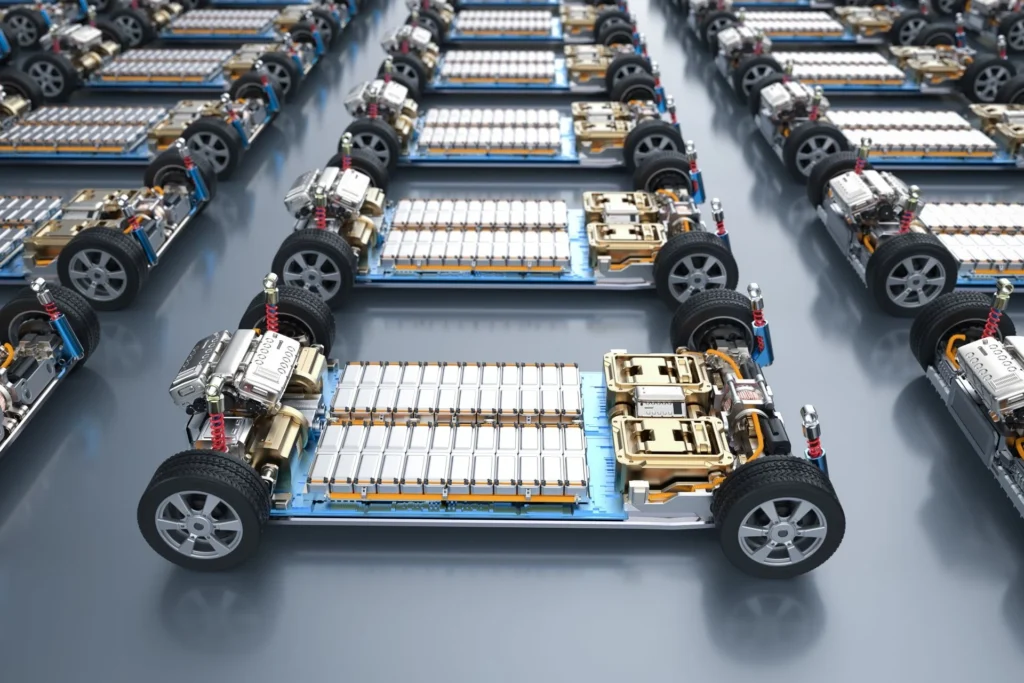The Electric Vehicle Revolution is gaining momentum as new battery technologies are extending the range of electric vehicles. With advancements in battery technology, electric vehicles are now able to travel longer distances on a single charge, making them more practical for everyday use. These new batteries are also more efficient and durable, addressing some of the key concerns that have held back widespread adoption of electric vehicles. As a result, the market for electric vehicles is growing rapidly, with more options available to consumers than ever before.
As the demand for electric vehicles continues to rise, there is a growing interest in alternative power sources and energy storage solutions to further extend the range of these vehicles. Consumers are curious about the potential of new battery technologies, such as solid-state batteries and lithium-sulfur batteries, to revolutionize the electric vehicle industry. These alternative battery technologies offer the promise of even greater energy density and longer range, addressing one of the main barriers to widespread adoption of electric vehicles. Additionally, advancements in charging infrastructure and renewable energy sources are also contributing to the electric vehicle revolution, making it an exciting time for the future of transportation.
1. The Importance of Battery Technologies in the Electric Vehicle Revolution
As the demand for electric vehicles (EVs) continues to rise, the development of advanced battery technologies has become crucial in extending the range of these vehicles. The performance and efficiency of EV batteries directly impact the driving range, charging time, and overall cost of ownership, making them a key focus of innovation in the automotive industry.
New battery technologies not only aim to increase the energy density of the batteries to store more power in a compact space but also focus on improving the durability and longevity of the batteries. These advancements are essential in addressing the range anxiety commonly associated with electric vehicles and are driving the widespread adoption of EVs.
2. The Evolution of Lithium-ion Batteries in Electric Vehicles
Lithium-ion batteries have been the primary energy storage solution for electric vehicles due to their high energy density and relatively light weight. Over the years, significant progress has been made in enhancing the performance of lithium-ion batteries, leading to increased driving ranges and faster charging capabilities for EVs.
Advancements in lithium-ion battery technology have included the use of different cathode and anode materials, improvements in electrolyte composition, and the implementation of solid-state designs. These developments have not only extended the range of electric vehicles but have also contributed to the overall sustainability and environmental impact of EVs.
3. Solid-State Batteries: The Next Frontier in Electric Vehicle Technology
Solid-state batteries have emerged as a promising alternative to traditional lithium-ion batteries, offering higher energy density, improved safety, and faster charging rates. By replacing the liquid electrolyte found in lithium-ion batteries with a solid-state electrolyte, these batteries can potentially address many of the limitations associated with current EV battery technology.
With the potential to significantly increase the driving range of electric vehicles and reduce charging times, solid-state batteries are the focus of extensive research and development efforts. As these technologies continue to mature, they have the potential to revolutionize the electric vehicle industry and accelerate the global transition to sustainable transportation.
4. Advancements in Battery Management Systems for Enhanced Efficiency
Battery management systems (BMS) play a critical role in optimizing the performance and longevity of electric vehicle batteries. These systems monitor the health of individual battery cells, manage charging and discharging processes, and ensure the safety of the overall battery pack.
Recent advancements in BMS technology have enabled more accurate state-of-charge and state-of-health estimations, improved thermal management, and enhanced safety features such as overcharge and over-discharge protection. These developments not only contribute to extending the range of electric vehicles but also enhance the overall efficiency and reliability of EV battery systems.
5. The Impact of Advanced Charging Infrastructure on Electric Vehicle Range
While advancements in battery technologies are crucial for extending the range of electric vehicles, the development of a robust charging infrastructure is equally important. Rapid charging stations and high-power chargers are essential for enabling long-distance travel and reducing the charging time for EVs.
Furthermore, smart grid integration and vehicle-to-grid (V2G) technologies are being explored to optimize charging processes and minimize the impact of EV charging on the electrical grid. These developments in charging infrastructure are pivotal in supporting the widespread adoption of electric vehicles and addressing range limitations.
6. Sustainable Materials and Manufacturing Processes for EV Batteries
In addition to the technological advancements in battery chemistry and design, the use of sustainable materials and eco-friendly manufacturing processes is gaining traction in the production of EV batteries. This includes the responsible sourcing of raw materials, such as lithium and cobalt, and the development of recycling programs for end-of-life batteries.
By prioritizing environmental sustainability throughout the battery supply chain, the electric vehicle industry aims to minimize its carbon footprint and reduce reliance on finite resources. These efforts contribute to the overall sustainability of electric vehicles and support the transition towards a greener transportation ecosystem.
7. The Integration of Energy Storage Solutions in Electric Vehicles
Beyond powering the vehicle, advanced battery technologies are enabling the integration of energy storage solutions in electric vehicles. This allows for vehicle-to-home (V2H) and vehicle-to-grid (V2G) capabilities, where EVs can serve as mobile energy storage units to support residential and grid-level energy needs.
By leveraging the energy stored in EV batteries during off-peak hours or in emergency situations, these integrated storage solutions contribute to grid stability, energy resilience, and peak load management. This integration of EVs with energy storage systems represents a significant step towards a more sustainable and decentralized energy ecosystem.
8. Future Outlook: Innovations Driving Further Range Extension for Electric Vehicles
Looking ahead, ongoing research and development efforts continue to push the boundaries of battery technologies, with a focus on achieving even greater energy density, faster charging capabilities, and improved overall performance. From advancements in silicon-based anodes to the exploration of alternative battery chemistries, the future of electric vehicle range extension holds tremendous potential.
Furthermore, collaborative initiatives between automakers, battery manufacturers, and research institutions are driving innovation in materials science, manufacturing processes, and system integration, paving the way for the next generation of electric vehicles with extended ranges and enhanced capabilities. As these innovations continue to unfold, the electric vehicle revolution is poised to reach new heights in the years to come.
| Battery Technology | Range Extension |
|---|---|
| Lithium-ion | Improvements in energy density and longevity |
| Solid-state | Potential for higher energy density and faster charging |
| Lithium-sulfur | Potential for doubling the range of electric vehicles |
| Graphene-based | Lighter and more durable batteries for increased range |



